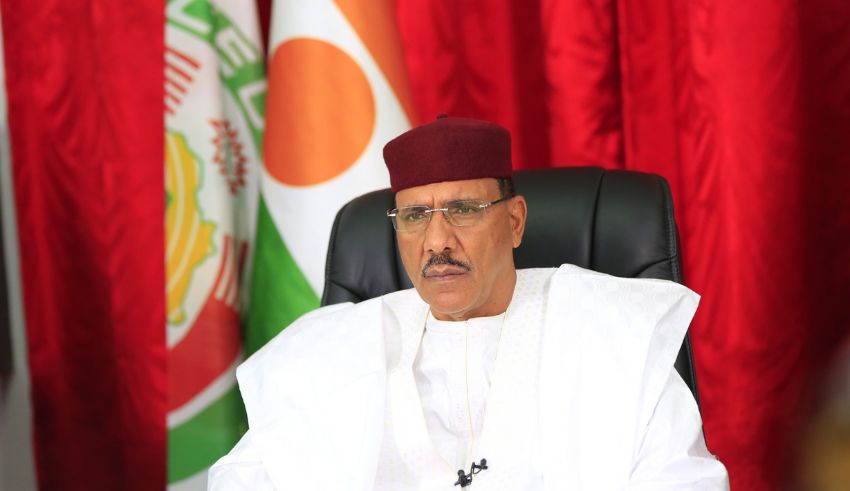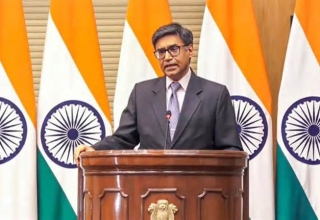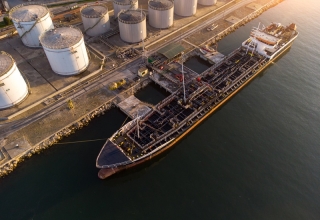
About thirty eminent people, including Nobel Prize laureates Denis Mukwege and Wole Soyinka, made a fervent and urgent appeal on Sunday for the release of Niger’s former president, Mohamed Bazoum, who has been under detention since a military takeover of his administration in July 2023. Published in the French daily *Le Monde*, their appeal sought to have Bazoum and his wife, Hadiza, both of whom had been imprisoned at the presidential palace under appalling conditions released by Niger’s military authorities.
An Appeal for Justice Made Globally by Leaders
Originating from all around the world, the statement’s signatories voiced great concern about the treatment of the ousted president and reprimanded the military forces for what they considered to be “arbitrary detention.” Under supposedly “very harsh conditions,” Niger’s democratically elected leader, Bazoum, and his wife have been living apart. Human rights activists all around have expressed concerns about the couple’s situation—strict monitoring under little interaction with the outside world—that has exposed reports. The demand emphasizes both the urgent need for immediate release and Niger’s need of democratic governance restoration.
Political exacting revenge or unfounded charges?
Under General Abdourahamane Tiani, the military government of Niger has accused Bazoum of several major offenses including treason, funding terrorism, and conspiratorial conduct meant to threaten the state. Still, views on these claims among Bazoum’s followers as well as foreign observers are often dubious. Many think the charges are political, meant to support the coup and the later president’s arrest. Tensions keep growing while the military leadership shows no sign of resigning as the nation struggles with an uncertain political future.
In their open letter, the Nobel laureates and other signatories contended that Bazoum’s arrest compromises Niger’s democratic values rather than only violating someone’s rights. The former president is being punished, they said, for his relentless dedication to preserving liberties, the rule of law, and government that accords public good first importance. The writers’ assertions that Bazoum’s government had actively fought corruption and public fund theft outraged strong members of Niger’s political and military elite. His refusal to flee after the coup in spite of junta pressure has strengthened his reputation as a defender of democracy even as his captors try to silence him.
The More General Consequences of Niger’s Political Crisis
Rising via a coup in July 2023, Niger’s military government has mostly justified its takeover with reference to the country’s worsening security scenario. Under Bazoum’s guidance, Niger allegedly was unable to stop the growing menace of Islamic violence destroying the Sahel region over years. Still, the political turbulence of today has not greatly addressed security issues either. Actually, things have probably become worse since the military seized over. Data from the Armed Conflict Location and Event Data Project (ACLED) show that over 1,500 citizens and troops have been murdered in jihadist attacks since the coup, therefore highlighting the junta’s inability to live up to its pledges of restoring order.
Under Bazoum’s direction, 650,000 deaths linked to jihadist activity were recorded between July 2022 and 2023; although alarming, this is significantly less than the current fatality count. This difference highlights the complexity of Niger’s security issues and questions the junta’s claim that national security justified the replacement of the democratically chosen government.
A Chronicle of Coupes and Unrest
For Niger, military coups and political unrest have a long and difficult history. Released in 1960, former colonialist France has seen five successful coups and some more failed ones since then. Every political revolution has left horrible marks on the government systems and national economy, therefore impeding initiatives toward a stable and rich nation.
Removing Bazoum from the presidency, the most recent coup marks still another phase in this cycle of unrest. Pointing out the growing terrorist danger and the government’s claimed lack of protection for its citizens, the military chiefs under General Tiani have defended their activities. Critics respond that the coup has further undermined Niger’s democratic institutions and increased the instability of the nation. Now symbolizing this more general deterioration of democratic values and human rights in the nation, Bazoum’s ongoing detention
Negotiating Niger’s Junta: The International Reaction
Following the coup, Bazoum’s treatment and the more general political problem arising in Niger have drawn increasing criticism all over. After criticizing the military takeover, many nations—especially in the West—have demanded the immediate release of the former president. Given Niger’s location in the Sahel region, both France and the United States—who have major strategic interests in the country—have expressed serious worries about the circumstances. Under debate as potential methods to compel the military government into handing over control and restoring civilian authority are sanctions and other punitive actions.
Notwithstanding these initiatives, the junta displays little will to make concessions or have meaningful communication with the world community. General Tiani and his supporters are still under great control, but there are worries that the military dictatorship may get more ingrained the more Bazoum stays under custody. Demand for his release under leaders like Mukwege and Soyinka tries to maintain pressure on Niger’s military government and stop the nation from spiraling farther into dictatorship.
Future of Niger: An Intersection Moment
Apart from the broader political environment of Niger, Mohamed Bazoum’s fate decides the path of the nation. Should Bazoum be freed and democratic government rebuilt, Niger might be able to start the process of reconstructing its institutions and tackling national security related issues. Still, the route to such a solution is not short.
The military regime shows no indications of downing, hence any effort to drive the junta from power has the risk of aggravating additional instability and violence. Bazoum’s imprisonment still remains a major concern for Niger’s continuous political dilemma; consequently, the result of this circumstance will have major effects not only for the nation but also for the whole region.
There is anticipation that the junta might at least yield under pressure as demands for his release keep rising both locally and abroad. Although publishing Bazoum would be a great triumph for democracy and human rights in Niger, it is still to be seen if this conclusion can be reached amicably.
Niger has been at a turning point historically. President Bazoum’s continuous detention captures the larger conflict between democracy and authoritarianism running over the Sahel area. Niger’s military government is under close monitoring as world pressure rises to determine whether to choose a path of reconciliation or more thorough entrenchment. Though for now the future is yet unknown, the release of Bazoum would be a vital first step towards rebuilding nation and restoring democratic government. Though the voices of intellectuals, activists, and world leaders are getting louder, it is yet unknown if Niger’s military government would pay any notice to them.























